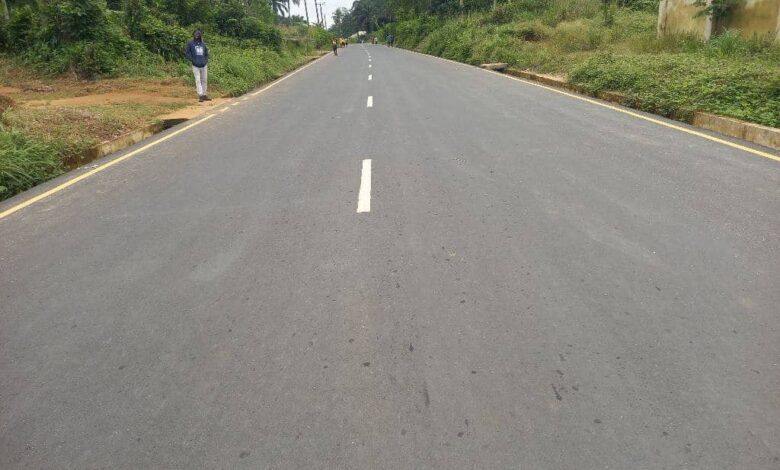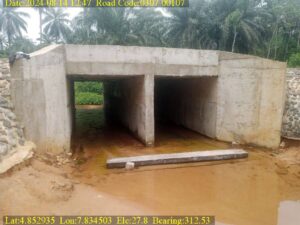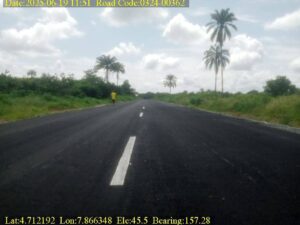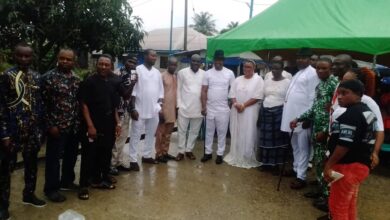Transforming Rural Communities: AKS-RAAMP’s Milestones in Akwa Ibom at 38

By: Theresa Donatus, Uyo.
As Akwa Ibom State celebrates her 38th anniversary, one story that deserves attention is not just told in statistics or reports, but in the everyday lives of rural dwellers whose realities are changing. It is the story of the Akwa Ibom State Rural Access and Agricultural Marketing Project (AKS-RAAMP) a transformative initiative that has turned dirt tracks into lifelines, dilapidated markets into economic hubs, and unemployment into opportunities for youth empowerment.
RAAMP is a jointly funded programme of the World Bank, the French Development Agency (AFD), and the Akwa Ibom State Government, designed to improve rural road networks, enhance access to markets, and promote agricultural value chains.

In a state where more than 60 percent of the population depends on agriculture and agro-trading, accessibility is not a luxury, it is survival. Bad roads have historically cut off rural farmers from markets, raised transport costs, discouraged investment, and worsened poverty. RAAMP was conceived as the answer to these structural challenges.
So far, over 202 kilometers of rural roads across 47 projects in 21 Local Government Areas are being transformed under RAAMP. Three major roads totaling 21.367 kmhave been completed and await commissioning, including:
11 km Owotuta–Nung Oku Ekere–Afaha Udo Eyop–Edeobom–Utuat market junction demonstration road (Ibesikpo Asutan/Nsit Ibom LGAs).
7.106 km Ibiaku Obio Ndobo–Adadia road (Uruan LGA).
2.119 km Okop Nko–Okop Ndua road (Ibesikpo Asutan).
1.142 km Ikot Obio Eket–Ikot Mbong road (Etinan LGA).

For rural farmers and transporters, these are not mere figures—they represent reduced travel time, lower transport costs, and easier access to hospitals, schools, and urban markets.
“Before now, carrying garri or cassava to the market was a nightmare. A journey that should take 20 minutes could last 2 hours because of bad roads. Now, trucks can reach us, and traders from Uyo come here with ease,” says Ekaette Jonah, a cassava farmer in Ibesikpo Asutan.
For traders like Bassey Okon in Adadia market, the benefits are just as profound: “We no longer lose perishable goods because of delays. Fish and vegetables now reach the market fresh, and customers are happier to buy.”
RAAMP’s interventions extend beyond roads to include critical drainage structures that reconnect once-isolated communities.
At Ikot Abasi I–Ikot Inyang Ossom–Afaha Iman, a collapsed bridge had cut off traffic and trade for years, turning daily life into hardship. With the construction of a double-cell 4×12 meters drainage structure, communities have been reconnected, reuniting families and reviving economic life.
In addition to road networks, RAAMP is upgrading three rural markets into modern agro-logistics centers, one in each senatorial district.
These markets are designed with lock-up stores, parking lots, cold storage, banking halls, warehouses, water and electricity supply, and perimeter fencing. For traders, this means more secure, hygienic, and profitable business environments. For farmers, it means better prices and reduced wastage of produce.
According to Pastor Gideon Cephas Akpan, State Project Coordinator, “The agro-logistics centers will not just boost commerce but also strengthen rural economies, create jobs, and make our markets competitive at national and even regional levels.”
One of RAAMP’s most innovative features in Akwa Ibom is the partnership with the International Labour Organization (ILO) on Routine Road Maintenance.
Akwa Ibom is one of only five pilot states in Nigeria implementing this model, which covers 200 km of routine maintenance and 50 km of spot improvement. Activities include clearing drains, cleaning culverts, repairing failed portions, and maintaining vegetation along roads.
Crucially, the scheme also serves as a job creation tool, with 52% of opportunities reserved for women and persons with disabilities. This aligns with the global push for inclusive development, giving vulnerable groups a stake in rural transformation.
So far, RAAMP has engaged 12 construction firms and 4 consultancy companies, directly employing hundreds of Akwa Ibom youths. Many more benefit indirectly as suppliers, transporters, artisans, and service providers.
But empowerment goes beyond jobs. RAAMP also invests in capacity building for indigenous contractors. At the start, no local firms could meet the technical standards required by the World Bank.
Through targeted training and mentorship, two Akwa Ibom-based companies—Basse Engineering & Mitchell Ltd and AYF Development Nigeria Ltd —have successfully executed RAAMP contracts.
This achievement is not only a boost to local pride but also ensures that Akwa Ibom firms can now compete confidently in global-standard procurement exercises.
Governor Pastor Umo Eno’s ARISE Agenda prioritizes inclusive development, rural infrastructure, and agricultural value-chain growth. RAAMP fits seamlessly into this vision by directly linking rural communities with opportunities for prosperity.
Dr. Offiong Offor, Hon. Commissioner for Agriculture, describes RAAMP as a “multiplier blessing to the state economy”, while reaffirming government’s commitment to release counterpart funds and ensure smooth execution.
As Akwa Ibom marks 38 years of statehood, RAAMP stands out as an enduring legacy of rural empowerment. Its impact is seen in:
Improved mobility and reduced poverty in rural communities; Enhanced agricultural productivity and market access; Job creation and women’s empowerment; Capacity building for indigenous companies and Stronger social cohesion through reconnection of cut-off communities.
For many in the state, RAAMP is not just about roads or markets—it is about dignity, opportunity, and hope for a better tomorrow.
In the words of the Project Coordinator, Pastor Gideon Cephas Akpan:
“We will go the extra mile to justify government’s trust and the World Bank’s partnership. Every kilometer built, every market upgraded, every job created is a step closer to shared prosperity for all Akwa Ibom people.”
At 38, Akwa Ibom shines as a model of growth and innovation. And with RAAMP driving rural access and agricultural marketing, the state is well on course to achieve inclusive development where no community is left behind.




